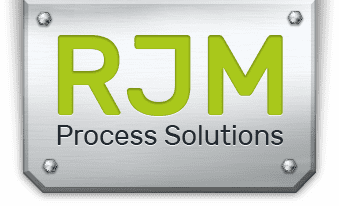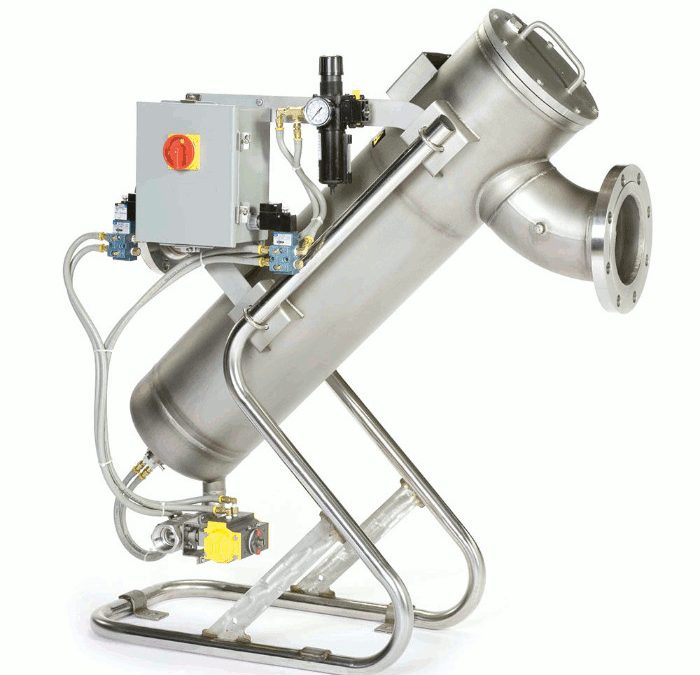Below is a Easton Success Story for thier filtration System.
Background
Powder coating is a widely-used alternative to liquid paints that is preferred in many applications because it does not require the use of a volatile solvent. The process uses fine, dry thermoplastic or thermoset powders that are electrostatically attracted to the object being coated and then thermally set and fused to form a tough, hard skin that typically is thicker and more durable than conventional paint.
A successful powder coating operation depends on consistent powder characteristics from batch to batch including purity, particle size, color, chemical composition and thermal properties. Naturally, powder production technologies are closely guarded trade secrets.
Challenges
Major powder suppliers tend to be experienced paint manufacturers because the two technologies are so closely related. When one of the largest powder producers moved an east coast operation into a new-to-them location in a 20-year-old industrial building, they immediately began to experience both production and product quality issues.
The production issues centered around clogged spray nozzles used in the production process, chillers fouled with sediment and excessive wear on other production equipment. More importantly their customers were noticing a decrease in the quality of the powder being supplied with a higher than acceptable number of inclusions that produced defects in the finished surface of the customer’s products.
Both issues were quickly traced to the plant’s aging water supply system. The multiple process lines in the plant use 600 gallons per minute of water originally sourced from the municipal supply. The water is chilled to various temperatures used in the process and then recirculated through a cooling tower in a semi-closed loop that requires only makeup water from the municipal system.
Upon inspection it was discovered that the plant piping was heavily corroded and clogged with sediment. One section of 6″ supply piping, for example, was more than 50 percent blocked with scale and sediment, robbing the downstream processes of adequate flow.
Plant managers initiated a program to replace the worst of the piping and performed an acid wash to free up accumulated scale in the system. Given the extent of the contamination, however, it simply was not economically feasible to replace all of the piping in the plant and an alternative solution was required.
Solution
At that point the facilities management team called in Engineering Sales Associates (ESA) of Charlotte, North Carolina, to explore the possibility of creating a filtration solution to eliminate the contamination at point-of-use. The task was assigned to ESA Solutions Manager Brandon Pue.
“The customer’s initial request was for point-of-use strainers at each critical device in the production system,” Pue said, “so that’s where we started. We installed eight 2” Eaton Model 72 strainers with 400 mesh elements to protect key equipment, but it didn’t take long to see that a more comprehensive solution was going to be required.
“The strainer installations included flow meters and valving that allowed us to monitor each station independently. What we found is that the amount of contamination still in the system quickly filled the strainers which created a maintenance requirement, negatively impacting production. We needed an additional solution to clean up the whole system and not just the pointsof- use.”
ESA’s analysis determined that the optimum solution was to filter the entire 600 gpm flow to 25 microns continuously. Achieving that result was complicated by the customer’s strong preference for a non-backwashing filter system and the physical space limitations of the plant.
“We looked at an Eaton MODULINE bag filter and the self-cleaning Eaton DCF series but to meet the flow and filtration requirements both of them required more floor space than was available,” Pue explained. “We sat down with the Eaton Filtration engineers to develop a solution, and it turned out to be a pair of Eaton MCS 1500 Series magnetically coupled strainers.”
Eaton MCS strainers are mechanically cleaned by moving a disc over the surface of a cylindrical wire filter screen. In the MCS Series the cleaning disc is magnetically coupled to the actuating piston which eliminates the need for shaft and external drive seals and greatly reduces system maintenance requirements. Process liquid is introduced in the center of the media and flows through it to be discharged on the outside.
Contaminants are collected on the inside surface of the media and when the flow restriction reaches a pre-determined value, the disc moves up and down to remove the contaminants and deposit them at the bottom of the filter housing where they can be purged. Very little process fluid is lost during the contaminant purge, and the entire process is accomplished while the filter is operating at full capacity with no interruption of liquid flow through the system.
“We installed a pair of MCS 1500 strainers to handle the full 600 gpm flow in the main circuit,” Pue continued. “We used two strainers to make sure we could meet both the flow and retention requirements of the system.
“They are installed on a common header with a butterfly valve to divert all of the flow through one strainer during maintenance. We designed it that way to eliminate costly downtime whenever one of the strainers was out of service for maintenance or any other reason.”
The installation also includes an Eaton FLOWLINE II bag filter in a side loop of water from the cooling tower.
“The FLOWLINE II is really just there to catch anything that may have been picked up in the cooling town before the water is returned to the process loop,” Pue said. “The customer also chose to leave the Eaton Model 72 point-of-use strainers in place as an extra precaution.
Results
Once installed, the filtration solution immediately produced an increase in powder production primarily due to the elimination of contamination-related maintenance downtime. The new MCS strainers are being serviced annually, and even that does not interrupt production since the flow is simply diverted from one strainer to the other.
The efficient, self-cleaning MCS strainers have allowed the plant to increase production while eliminating the downtime previously required to service clogged spray nozzles and fouled chillers as well as the cost of replacing hundreds of feet of contaminated pipe. Even more important, however, is the fact the customer complaints about powder quality have diminished from a roar to a whisper.

Eaton‘s MCS 1500 high flow strainer
Eaton‘s MCS 1500 high flow strainer is perfect for high-capacity straining needs. Its magnetically coupled actuation eliminates the need for dynamic seals. This technology provides quick and easy access for maintenance, reduces potential leaks, and requires few moving parts while providing a long service life.
See more information HERE

